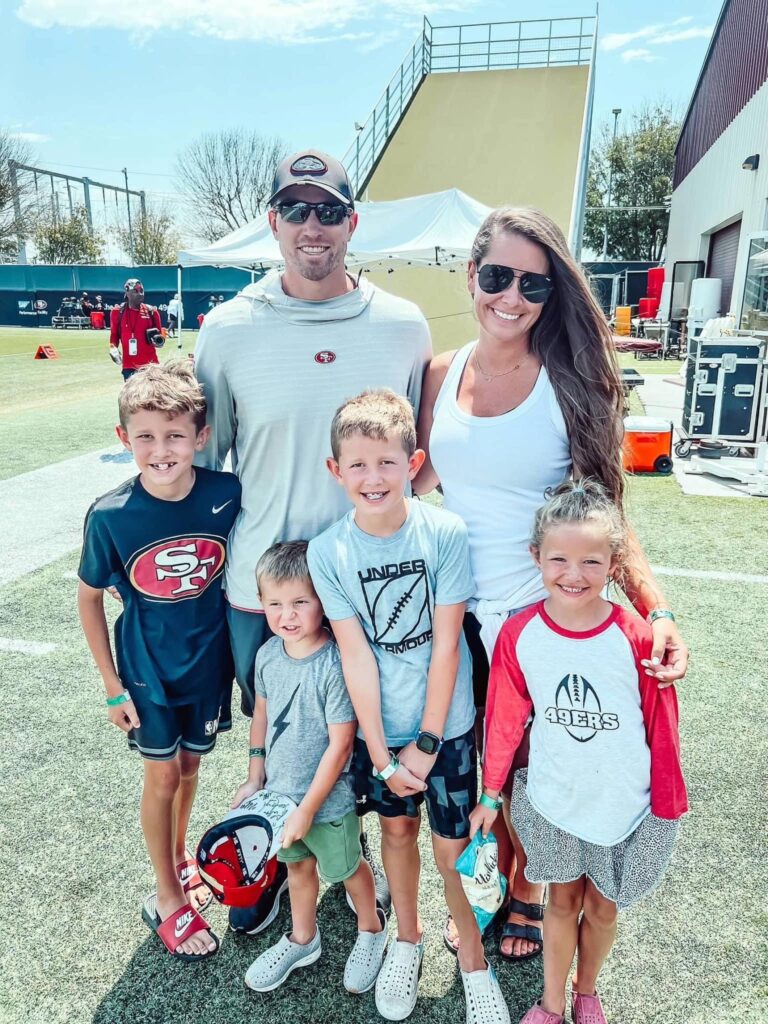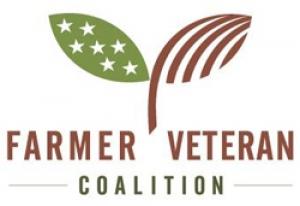San Francisco, California, traffic in the afternoon can be a bit much, especially if you’re from a small town in the Midwest. However, Dustin Little, a native of Castlewood, South Dakota, makes the trip twice a day to and from work. The small-town native recently finished his fourth season as the Head Athletic Trainer for the San Francisco 49ers.
Life in the NFL is known as a “grind” for players and coaches, but trainers put in a whole lot of time taking care of those million-dollar athletes. While taking over the team’s training staff was a little overwhelming at first, Little says he’s much more comfortable in the leadership role.

“I’ve had the chance to work with John (Lynch, General Manager) and Kyle (Shanahan, Head Coach) for four years, and I’ve had my stuff in place that long as well,” Little said. “Being able to implement many of the things the staff wanted to do when we first arrived is a big help.”
As the leader of the training staff, Little has gotten a lot of enjoyment out of seeing the members function as a unit. It’s important to work well together because the training and performance staff spend a lot of time on the job. As the Head Trainer, Little outlined what a typical day looks like during the season, and his days start early.
Long Days
“Most days, I get up around 4 a.m. and head in to work out for around 45 minutes,” he said. “I’ll get to my desk between 5:30 and 6:00. I’ll spend some time making sure things are lined up for the day and figure out what we want to accomplish that week too. We’ll usually meet as a performance staff around 6:30 a.m.”
Treatments begin bright and early at 7 a.m. before the players head off for meetings. Long-term injury treatments begin at 8:00. Little will also sit in on certain meetings before giving injury updates to San Francisco G.M. Lynch and Coach Shanahan.
After that, they begin pre-practice work before joining the players on the practice field. Once practice is done, they’ll do post-practice treatments before a final player meeting. After that, the day ends with even more treatment work.
‘The week starts on Monday, the day after a game, so right away we have to get a handle on the injury stuff, including imaging and communication,” Little said. “Tuesday is the players’ day off, which is a lesser day for us. We’ll do a lot of treatment that day and set up the schedule for the rest of the week.
“We have practices Wednesday, Thursday, and Friday, so those days are pretty similar,” he added. “Saturday is the day before a game, and it’s a little pulled back. We usually stay with the team at the hotel before game day on Sunday.”
Game Day
Sunday afternoon NFL games are some of the most-watched television programming in the country. If one of the million-dollar athletes goes down with an injury, Little and his staff are suddenly among the most important people in the stadium. He says that realization never really hit him because game days are different for the training staff compared to anyone else.
“We’re watching the game like other people, but we’re doing it for an entirely different purpose,” he said thoughtfully. “I’m looking at the players in a broad view rather than watching the ball. If I see a guy that doesn’t look right, I’ll make a note and follow up with him on the sideline.”
If a player does get hurt, Little said a lot of processes take place between the athletic staff and the team doctors. They talk about things like diagnosing an injury, the possibility of getting back into the game, or concussion protocols. They also have to communicate the status with the coaching staff as well.
The medical tent on every NFL sideline can get a lot of TV time if there are multiple injuries during a game. As viewers watch players get taken into the tent, Little said the main goal in there is to get the player evaluated as quickly as possible.
“It’s to help the doctors, the players, and me do what they need to do without the camera being on them,” he said. “We don’t do a lot of treatment in there. It’s more about evaluation and making decisions.
“Game day is different for me and my staff,” Little said. “If I want to actually watch the game, I’ll go home and check out the condensed version of the game on TV to see what happened.”
Working with Pro Athletes
National sports media have shown fans some of the worst behavior from professional athletes. While the NFL does have its share of divas, Little said that doesn’t truly apply to most of the NFL’s athletes.
“Most of our guys and other players across the league are pretty respectful and down-to-Earth good dudes,” Little said. “They make a lot of money, but most of the San Francisco guys are normal people. Guys like (tight end) George Kittle, Nick Bosa (defensive end), and Christian McCaffrey (running back) will all stop into my office for a cup of coffee and have a conversation.
“Pretty normal stuff,” Little added with a laugh. “We’ll sit and do a crossword puzzle the night before a game. It’s not as crazy as some might think.”
On the Road Again
One of the more difficult things about life in big-time sports is the constant travel. While going to some of the nation’s biggest cities might sound glamorous to many, it does get to be a grind, especially when traveling from the west coast to the east coast.
“When we’re heading to the other coast for a game, we’ll be out there for the entire week. It usually happens a couple of times per season,” he said. “My staff’s been together a while, so we know what we need to pack and bring along on the trip.
“The interesting thing about travel for us is we get police escorts to get to our planes,” Little said. “We drive right up to the plane, hop on the stairs, and climb aboard. They’re all San Francisco charters when we travel, and you can get very used to those things. We’re not going through the normal security that everyone else does.”
Now that he’s just wrapped up his fourth year, Little said he and his staff know what to expect when they get to each stadium on the road. While it might seem like fun to travel to different cities, Little doesn’t get much time to sightsee.
“I told my wife that I don’t actually travel to other cities,” he said with a laugh. “I just travel to the insides of different hotels. We usually get about two hours on a Saturday afternoon to look around. When we were in Philadelphia for the playoff game with the Eagles, we were close to a few interesting things to check out.”
Most of the time, Little says he’ll use those few hours to himself to work out and call the family back on the west coast. “I will say, the cheesesteaks in Philadelphia are especially good,” he added.
Come a Long Way from the Midwest
Little leads an extraordinarily busy life, as you can tell by now. However, he does get a chance to reflect on how far he’s come, starting in the tiny town of Castlewood, South Dakota (population 690) and moving on to Denver, Colorado (pop. 711,400), and then to San Francisco, California (pop. 815,000).

“Once in a while, I do get a chance to think about starting out in a small town before heading through Denver and arriving in San Francisco, and who I get to work withsiou,” he said. “But my mindset growing up was I had a goal and a dream and didn’t put any limitations on myself.
“I remember being a Physical Therapy student and working with a guy in Sioux Falls, South Dakota,” Little recalled. “He asked me what I wanted to do after school, and my answer was to work in the NFL as a head athletic trainer. He was a little surprised at first but recalled that I never put any limits on what I wanted to do.
“He’s telling that to other PT students now,” he added. “Go all-in on what you want to do, put a plan in place, and make good decisions along the way.”


